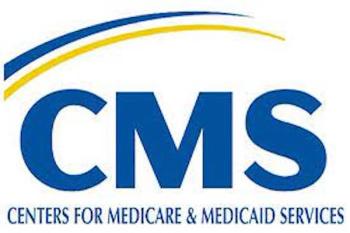
Federal actuaries have projected what they believe to be health care spending through 2030-2031 in 9 important areas.

Maggie is a senior editor for The American Journal of Managed Care® (AJMC®) and produces written, video, and podcast content covering several disease states. She joined AJMC® in 2019, and has been with AJMC®’s parent company, MJH Life Sciences®, since 2014, when she started as a copy editor.
She has a BA in English from Penn State University. You can connect with Maggie on LinkedIn.

Federal actuaries have projected what they believe to be health care spending through 2030-2031 in 9 important areas.

Kristine Slam, MD, FACP, discusses the importance of genetic testing in male patients with breast cancer and why it’s important that all patients with breast cancer advocate for themselves.
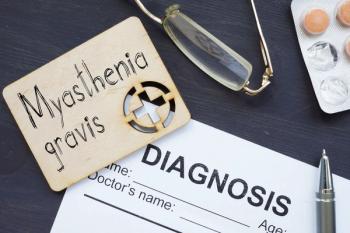
This case report details an incident of pembrolizumab-induced myasthenia gravis in an elderly male patient being treated for urothelial cell bladder cancer.

Through the integration of a population health reimbursement model in 2020, Allina Health Cancer Institute was able to implement expanded screening initiatives through the use of artificial intelligence and precision medicine, according to Mike Koroscik, MBA, MHA, vice president of oncology, Allina Health.

This comprehensive comparative analysis examined the economic and health care resource utilization implications of initiating glucocorticoid and exon-skipping therapy for Duchenne muscular dystrophy (DMD).
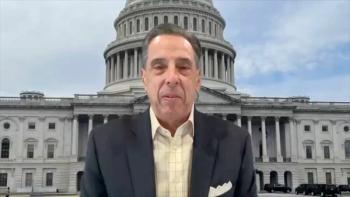
Ted Okon, MBA, executive director, Community Oncology Alliance, discusses early returns from the Enhancing Oncology Model and how community oncology practices are innovating in ways that can expand into other areas of medicine.

Miriam J. Atkins, MD, FACP, president of the Community Oncology Alliance, discusses the challenges facing oncology today, such as physician and nurse recruitment and minority clinical trial enrollment.

At the 2023 COA Payer Exchange Summit being held October 23-24 in Reston, Virginia, Lalan Wilfong, MD, US Oncology Network, emphasizes the importance of oncology care equity, ensuring continuity of care, and enhancing care coordination.

Health equity coverage appearing in the October 2023 issue of Evidence-Based Oncology.

Study investigators note their meta-analysis may be the first to demonstrate the importance of interventions to support adherence to adjuvant endocrine therapy for breast cancer.

In this case study, a patient who had Duchenne muscular dystrophy (DMD) and received high-dose transgene therapy to upregulate cortical dystrophin subsequently developed acute respiratory distress syndrome and died.

A new analysis has determined potential risk factors for developing myasthenia gravis following COVID-19 vaccination, with symptoms likely to appear within 2 weeks of receipt of a COVID-19 vaccine.

To ensure patients are getting timely access to their treatments, there needs to be better collaboration between payers and providers, said Christine Pfaff, RPh, senior regional director of operations, American Oncology Network.
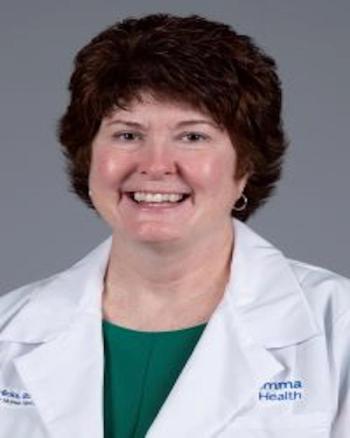
A 2022 yearlong initiative at Summa Health Cancer Institute saw 100% of its patients with head and neck cancer undergoing radiation treatment referred to an oncology dietician for nutritional support and/or speech and swallow therapy.

Kristine Slam, MD, FACP, Central Ohio Surgical Associates, addresses the importance of involving patients in decisions regarding their goals for treatment, emphasizing that this involvement is critical to uncover what they value, as well as their short- and long-term goals for treatment.

According to the National Cancer Institute, in the year following a cancer diagnosis, the average cost of medical care plus medication exceeds $42,000, with some treatments having a price tag of more than $1 million.

Fabric Health is transforming laundry time into an opportunity for community well-being, engaging families in laundromats to address health needs and connecting them with health care experts and needed social services. Adaptable and problem-solving oriented, the social-impact startup helps to bridge pandemic-exacerbated disparities by meeting people where they are, fostering health equity.

For patients who had 12 months of continuous health care coverage before and after receiving a diagnosis of vitiligo, treatment rates were at suboptimal levels.

Asian and Hispanic/Latino veterans experience insomnia at some of the highest rates, but these patient groups are also among the least likely to seek treatment for the common sleep disorder.

Qualitative interviews were conducted and a web-based quantitative survey was administered to have a clearer understanding of the economic impact of social determinants of health on patients living with generalized myasthenia gravis (gMG).

Pinky, a mobile mammography unit from Stony Brook University Hospital Cancer Center on Long Island, increased screening for breast cancer from 9% to 69% among the predominantly Latina population that it serves.

Christine Pfaff, RPh, senior regional director of operations at American Oncology Network, discusses the role of immunotherapy and precision medicine in oncology, as well as considerations for patient safety and financial toxicity when prescribing oncology drugs.

The interrelated concepts of burnout, secondary traumatic stress, moral distress, compassion fatigue, and compassion satisfaction have been identified as having a profound impact on the quality of life of health care providers.

A presentation at the Association of Community Cancer Centers’ 40th National Oncology Conference explored how a cancer screening initiative can be sustainable and revenue positive while driving value-based savings in an evolving market.

A poster presented at the 40th National Oncology Conference addressed several hot topics in the oncology treatment and research space: addressing medical mistrust in underresourced communities, partnering with trusted organizations to improve health equity, and increasing inclusivity in research.
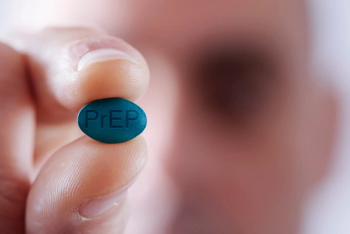
Among Latino men who have sex with men (MSM), access to and use of pre-exposure prophylaxis (PrEP) remain at suboptimal levels, despite this population of individuals having disproportionately high rates of diagnosed HIV in the United States.

Jennifer Sturgill, DO, Central Ohio Primary Care, discusses how shortages of antibiotics and medications for attention-deficit/hyperactivity disorder have affected primary care, as well as addresses the impact on heart failure care of CMS’ recent announcement of the first 10 drugs up for price negotiation in 2026 under the Inflation Reduction Act (IRA).

Fee-for-service care is not really in line with how primary care physicians think or how primary care should be delivered; the crux of value-based care is wanting patients to have the care they want and need, noted Kristin Oaks, DO, Agilon regional medical director at Central Ohio Primary Care.
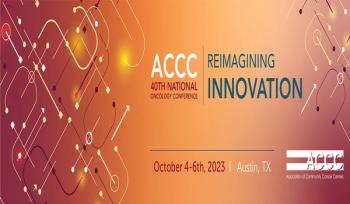
This year’s 40th National Oncology Conference from the Association of Community Cancer Centers (ACCC) will take place in Austin, Texas, from October 4-6, with content designed to reflect the theme of “Reimagining Innovation.”

In this interview from our recent Institute for Value-Based Medicine® event, Kristine Slam, MD, FACP, Central Ohio Surgical Associates, discusses the positive impact that Choosing Wisely and enhanced recovery after surgery, or EROS, protocols have had on patients receiving treatment for breast cancer.

259 Prospect Plains Rd, Bldg H
Cranbury, NJ 08512
© 2025 MJH Life Sciences®
All rights reserved.
